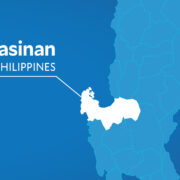Undoing sexting’s consequences

A 21-year-old girl asks on Reddit what she can do about the compromising images she previously sent online. When she was 16 years old, she shared several nude photos with a person she met on the internet. At the time, it seemed like a good idea because she really wanted him to like her. Five years later, she is worried and anxious that this person might have spread the pictures she once sent.
Sexting, or the exchange of sexually explicit content through mobile phones and other digital devices, has become commonplace among young people. Researchers estimate that at least 60 percent of teenagers have sent a compromising image or video. These supposed confidential exchanges, however, can quickly turn into a violation of one’s privacy and consent. In the Philippines, a 2022 Disrupting Harm Study released by Ecpat (End Child Prostitution, Child Pornography, and Trafficking of Children for Sexual Purposes) revealed that 13 percent of internet-using children aged 12 to 17, who took part in the survey, reported having their sexual images shared without their permission.
During adolescence, the brain region responsible for impulse control and risk evaluation is still developing, so young people have a difficult time fully foreseeing the long-term consequences of their actions. This makes it easy for them to underestimate the potential permanence and widespread dissemination of the sensitive content they share online. Teens are also highly vulnerable to peer influence and the need for social acceptance. The fear of rejection or social exclusion can push teens to engage in behaviors they might otherwise avoid. Studies show, for instance, that despite their reluctance, many teens still decide to share sexual images because they want to gain approval from a romantic partner and feel pressured to prove their affection in that way.
While educating teens about the potential risks of sexting is important, it is not a sufficient solution on its own. There must also be concrete tools that will enable young people not just to report the inappropriate use of their videos and images, but also to take back some measure of control over the content that they once shared.
Take It Down (takeitdown.ncmec.org) is a free online service that helps young people remove or limit the online sharing of their nudes and other sexually explicit messages that were taken when they were under 18 years old. It works by assigning the image or video a unique digital fingerprint called a hash value. Participating online platforms, like Instagram, Facebook, OnlyFans, and Snapchat, are then able to use the hash values to identify and delete matching posts. If someone tries to upload a matching image in the future, the participating online company will be able to detect it and take immediate action.
A major strength of this online tool is that the person can remain anonymous while reporting. They also do not need to upload the image or video because Take It Down directly generates the hash value on the user’s device, ensuring their privacy and safety. The tool was developed by the National Center for Missing and Exploited Children with financial support from Meta, and was launched in 2022. According to NCMEC’s 2024 CyberTipline Report, Take It Down has received more than 83,000 submissions.
Even the best tools won’t be effective if families and schools don’t know they exist. To spread awareness in the Philippines, Meta partnered with Stairway Foundation in localizing Take It Down’s informational videos and materials. According to Clare Amador, Meta director of public policy for the Philippines, Thailand, and Myanmar, the initiative is part of the global-scale partnerships that the tech company has undertaken to prevent the spread of children’s intimate images. “We’ve been working closely with NCMEC, experts, academics, parents, and victim advocates to help develop the platform and ensure that it responds to the needs of minors so they can regain control of their content in these horrific situations,” Amador said. “It will allow us to help prevent a minor’s intimate images from being posted online across the tech industry. The impact would not just be in the Philippines, but globally.”
Meta and Stairway Foundation are currently in the process of finalizing plans with government and NGO partners to implement on-ground training and briefing sessions in schools and communities to ensure that they can reach as many Filipinos as possible. “Keeping young people safe is important, especially in this environment where threats and risks evolve each day, and so they need to evolve their defenses, too,” Amador shared. “We hope that Take It Down will become part of that arsenal.”
Parents and educators need to proactively equip themselves with resources, not only to warn teens about the risks of sexting, but also to guide them toward solutions when mistakes happen. What young people need is not shame, but proper guidance and the chance to rectify the situation. An impulsive decision made at 16 should not become a lifelong sentence. Tools like Take It Down may not fully erase the consequences, but they help teenagers regain a sense of control.


















